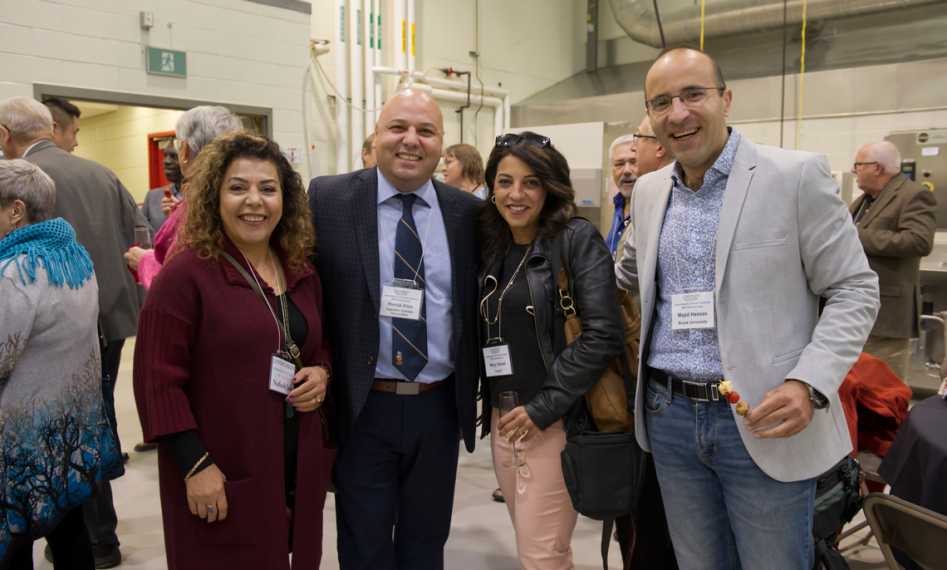Event recap: Celebrating 50 years of the Department of Food Science

On Saturday, September 29th, 145 people gathered to celebrate the 50th anniversary of the University of Guelph’s Department of Food Science.
Alumni, faculty, staff and friends came together to celebrate the milestone, but the history of the department dates back even farther to 1885, which was when the department’s predecessor, the Department of Dairying, was established.
The celebration included tours, led by graduate students, of the newly renovated pilot plants, and baking, fermentation and formulation labs. The guests sampled beer, cheese and cured meats made in the department.
A gala dinner followed, featuring three speakers.
- Daryl Holmes, Class of 1988, spoke to the group about the past of the department. He shared that his graduating class only had 16 students, as the field of food science was unknown to most. Nine of the classmates had transferred from other University of Guelph programs, six transferred from other universities, and only one had come into food science directly from high school. He also reflected on what has changed since his days on campus. Of significate note is how the roles of a food scientist has evolved. He shared a comment made by one of his professors, that food scientists “were not concerned about nutrition”, but rather only focused on safety, taste and product development. The crowd laughed at the absurdity of the comment in today’s context.
- Prof. Art Hill, chair of the department reviewed the department’s present. Since 1968 the department has graduated a total of 1,053 undergraduate students, 723 master’s students and 181 PhD. The department has introduced a new program, the Bachelor of Bio-Resource Management in Food Industry Management and of particular note is the department’s ranking of fourth in the world according to the Center for World University Rankings. Hill commented on what he feels the strength of the department have always been and continue to be: a focus on the scientific basics such as microbiology and chemistry. He also shared that the department has worked to ensure all of the major Canadian commodities, such as dairy, cereals and meat, are covered by its researchers.
- Finally, Ben Holland, who received his Bachelor of Science from the department in 2007 and master’s in 2010, spoke about the future. Ben shared his expert opinion on trends to watch for the future and provided advice to the department on areas of focus. Ben, a product developer for Loblaw Companies Limited, encouraged the department to continue its strong ties with industry. He also noted the department’s unique ability to be a source of unbiased information in a market that “is plagued with poor information”. He also spoke about the exciting new advances in technology, such as nanotech and 3D printing, and how they will change the role of food scientists, concluding with a passionate reminder of the privilege the people in the room have to work in food science: "We are the discipline of science that everyone wants to be.”